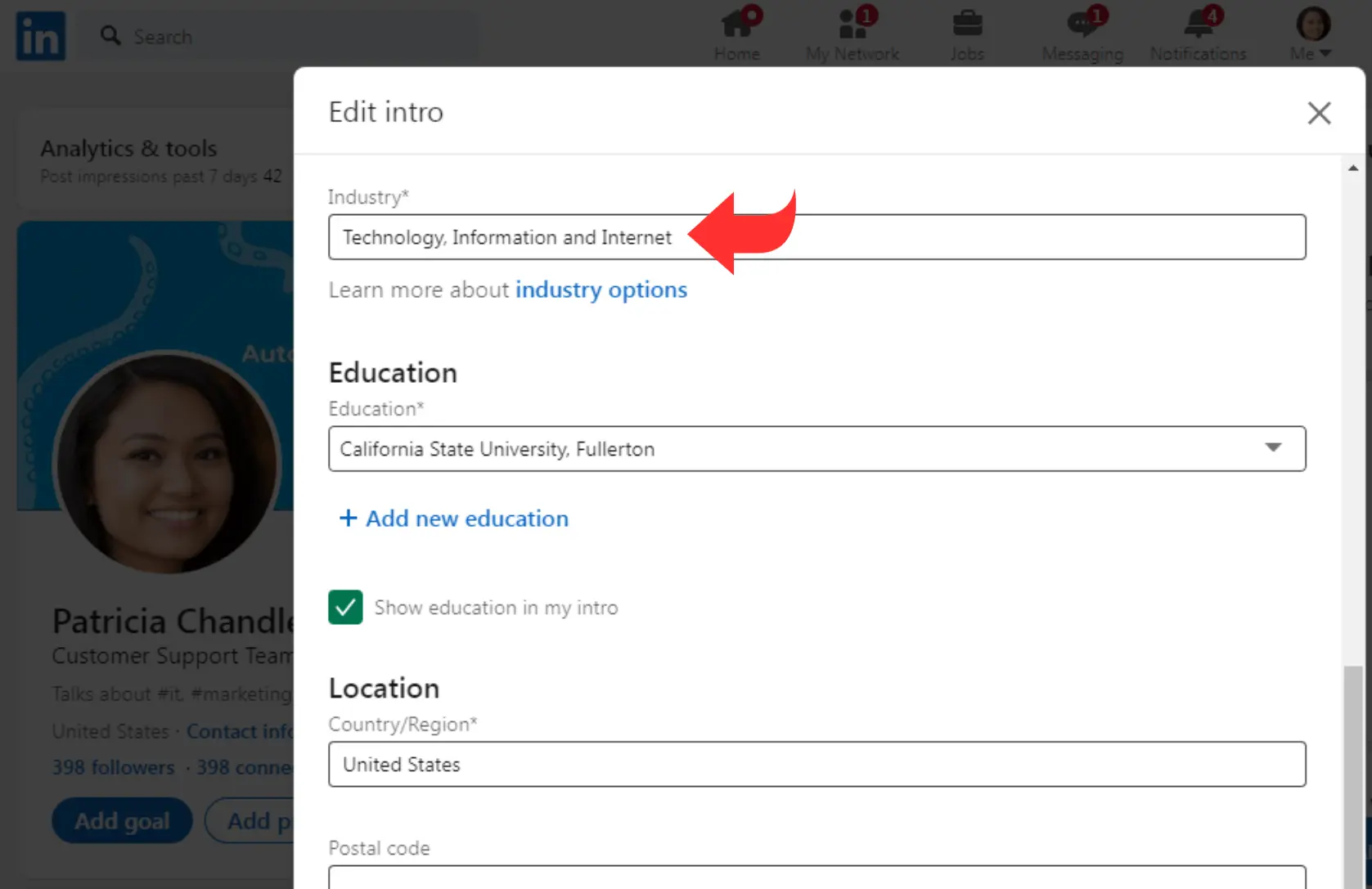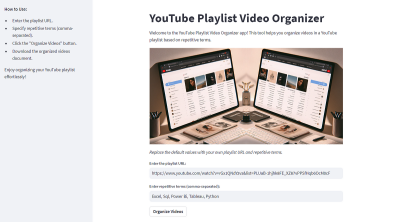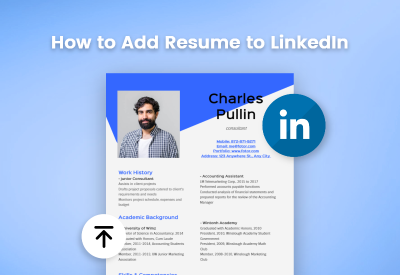Choosing the right industry to list on LinkedIn as a student is a crucial decision that can influence your networking opportunities and professional prospects. Many students overlook this aspect, thinking it doesn't matter. However, understanding how your chosen industry aligns with your career goals can significantly enhance your visibility to potential employers. In this post, we'll explore why industry selection is important and how to make an informed choice.
Understanding the Importance of Industry Selection

When it comes to LinkedIn, your industry choice isn't just a formality; it serves several key purposes:
- Visibility: Selecting the right industry helps recruiters and employers find you more easily. LinkedIn uses algorithms that match job seekers with open positions. The more accurately you define your professional identity through your industry choice, the better your chances of being discovered.
- Networking Opportunities: Your industry selection can shape the connections you make. Joining groups, following thought leaders, and participating in discussions within your chosen industry can help you forge valuable relationships.
- Relevance of Content: This goes hand in hand with networking; different industries have different trends, news, and discussions. By aligning your profile with an industry, you can better engage with relevant content, showcasing your knowledge and interests.
- Personal Branding: Your LinkedIn profile is a reflection of your personal brand. By clearly indicating your industry, you send a message about who you are and what you aspire to be. This can attract opportunities that align with your career goals.
In summary, choosing the right industry on LinkedIn as a student is akin to choosing the right stage to showcase your talents. Take time to research various fields, understand the job market, and reflect on your career aspirations to make a well-informed decision.
Identifying Your Interests and Goals

Before you dive into LinkedIn and start selecting an industry to list as a student, it’s crucial to take a moment and reflect on your own interests and career goals. This self-assessment will help guide your decision and make sure you choose an industry that aligns well with your aspirations.
Start by asking yourself some key questions:
- What subjects excite you? Think about the classes that made you lose track of time. Was it marketing? Environmental science? Coding? Your academic interests are a great starting point.
- What are your career aspirations? Envision where you want to be in five or ten years. Do you see yourself in a corporate setting, a startup, or perhaps in a non-profit organization?
- What are your values? Consider what’s important to you in a workplace—like innovation, teamwork, social impact, or work-life balance. Understanding your values will help you find an industry that resonates with you.
- What skills do you want to develop? Identify the skills you either already possess or want to cultivate further. Whether it’s communication, technical skills, or leadership abilities, choosing an industry that allows for growth in these areas is essential.
By taking the time to delve into these questions, you’ll not only clarify your own interests but also create a focus that can make your LinkedIn profile stand out. Remember, it’s not just about choosing an industry; it’s about finding a path that aligns with who you are and what you wish to achieve.
Researching Different Industries
Once you’ve pinpointed your interests and goals, the next step is to research the industries that catch your eye. This is not just a random exploration—it’s a strategic approach to pinpointing where you can thrive! Here are a few effective methods to gather information:
1. Utilize LinkedIn:
LinkedIn is an incredible resource for industry research. Check out:
- Industry leaders’ profiles to see their backgrounds.
- Company pages to grasp their missions, values, and recent developments.
- Relevant groups and forums to engage in conversations.
2. Online Research:
Browse websites like:
- U.S. Bureau of Labor Statistics for employment statistics
- Industry-specific articles or blogs for trends and insights
- Forums and discussion boards to hear experiences from professionals.
3. Networking:
Reach out to individuals currently working in your industries of interest. Conduct informational interviews to gain first-hand accounts about the work culture, challenges, and opportunities in these fields. Don’t hesitate to ask:
- What do they enjoy about their industry?
- What trends should you be aware of?
- What advice do they have for someone just starting out?
4. Job Boards and Internships:
Explore job boards that feature internship and entry-level positions. This will not only give you a glimpse into what’s available but also help you understand the skills and qualifications employers are seeking in candidates.
Researching various industries thoroughly will equip you with the knowledge to make an informed choice about the industry that best fits your future aspirations. In the end, choosing the right industry is a blend of your interests and informed understanding of what each industry can offer you!
How to Align Your Skills with Industry Demands
When you're a student exploring career options, it’s essential to align your skills with what various industries are looking for. This not only enhances your employability but also sets you up for a fulfilling career. So, how do you do this? Here are some practical steps:
- Identify Your Core Skills: Start by assessing your academic knowledge, technical skills, and soft skills. For instance, if you're proficient in coding, that’s a significant asset in tech industries.
- Research Industry Requirements: Look at job descriptions related to industries you are interested in. Make a list of common skills and qualifications these roles require.
- Gain Relevant Experience: Consider internships, part-time jobs, or volunteer opportunities that can help you acquire these skills while also enhancing your resume.
- Network with Professionals: Use platforms like LinkedIn to connect with industry professionals. Ask them about the skills that are in high demand in their fields.
- Continuous Learning: Online courses and certifications can help in bridging the skill gaps. Websites like Coursera, Udemy, and LinkedIn Learning are great places to start.
By taking these steps, not only do you position yourself favorably in the job market, but you also discover what you truly enjoy doing—making your future much brighter!
Tips for Making the Right Choice
Choosing the right industry can feel overwhelming, especially when you’re just starting out. Here are some actionable tips to guide you through the decision-making process:
- Self-Reflection: Spend some time thinking about your interests, values, and long-term career goals. What are you passionate about? Where do you see yourself thriving?
- Analyze Job Trends: Investigating current job trends can provide insight into industries that are growing or declining. Websites like the Bureau of Labor Statistics offer forecasts on various sectors.
- Seek Guidance: Don’t hesitate to reach out to mentors, professors, or career counselors. Their experience can provide you with a perspective you might not have considered.
- Evaluate Company Culture: Research potential employers within your chosen industry. A company’s culture can significantly impact your job satisfaction, so look for environments that resonate with your values.
- Be Open to Exploration: Don’t put all your eggs in one basket. Be willing to explore multiple industries; you may discover opportunities you hadn’t initially considered!
Remember, it's perfectly normal to feel uncertain at this stage. Trust the process, and take your time in making a choice that feels right for you!
Examples of Suitable Industries for Students
Choosing an industry to list on LinkedIn can feel overwhelming, especially when you're just starting out. However, picking the right one can significantly enhance your online presence and help catch the eye of potential employers. Here are some suitable industries that students might want to consider:
- Education: If you're studying or have a passion for teaching, this industry can showcase your educational background and any tutoring or mentorship experience.
- Technology: Whether you're pursuing computer science, information technology, or digital marketing, the tech industry is booming and offers countless opportunities for students.
- Healthcare: If you're studying nursing, pharmacy, or any health-related field, identifying yourself in the healthcare industry can help you connect with relevant internships and job openings.
- Finance: For those majoring in business or economics, this industry is a must. It highlights your analytical skills and can lead you to networking opportunities with potential employers.
- Marketing: Students with a flair for creativity and communication should consider marketing. It presents a chance to leverage any internships or projects you've worked on.
- Engineering: If you're studying engineering, you're in luck! This diverse field offers numerous sub-industries, from civil to software engineering, where you can target specific opportunities.
- Hospitality: Those pursuing careers in hospitality or tourism can benefit immensely by listing this industry, given the industry's focus on customer service and experience.
Remember, the industry you select should align with your career aspirations and areas of interest. Don't hesitate to adjust your choice as you gain more experience and clarity on your career path!
Conclusion
In conclusion, choosing the right industry to list on LinkedIn as a student plays a pivotal role in shaping your professional presence. It's not just about picking a label; it's about aligning it with your passions, skills, and career goals. By strategically selecting an industry that reflects your aspirations, you set yourself up for success in your job search and networking efforts.
Engaging with the right industry allows you to:
- Connect with industry professionals
- Gain insights into job opportunities
- Showcase relevant skills and experiences specific to that sector
As you embark on your journey, keep it flexible. Your interests might evolve, and so should your LinkedIn profile. Regularly revisiting and updating your chosen industry can help keep your professional presence fresh and aligned with your goals.
So, take the plunge! Choose an industry that resonates with you, and start connecting with potential mentors, employers, and peers. Your future self will thank you for it!
 admin
admin








